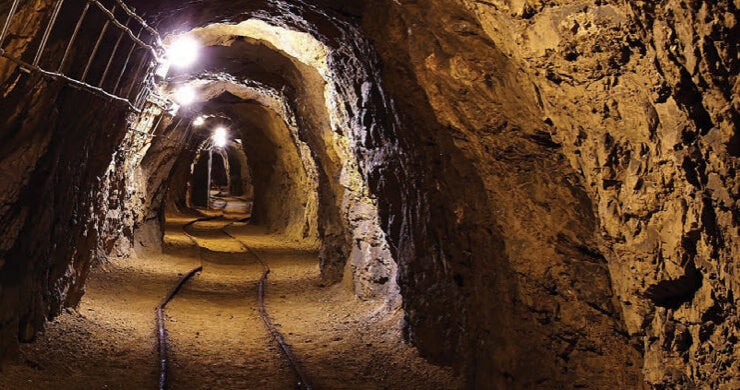The manufacturing industry has long grappled with the complex issue of conflict minerals. Section 1502 of the Dodd-Frank Wall Street Reform and Consumer Protection Act has aimed to mitigate the use of minerals sourced from conflict-ridden regions, primarily the Democratic Republic of the Congo (DRC), to curb the funding of armed groups and human rights abuses. The response to conflict mineral requirements has ranged from businesses embracing reporting as a competitive advantage to those struggling to meet the minimum requirements of the law.
And over the years businesses have evolved their programs to go beyond the basic requirements of the Dodd-Frank Act into broader, more proactive responsible sourcing programs. These programs account for the environmental, social, and — most notably in today’s current environment — good governance practices and how they impact their entire mineral value chain.
However, 2022 was a landmark year for conflict mineral reporting. Many manufacturers struggled with their reporting due to increased scrutiny on the metals industry, the recent proliferation of sanctions, plus investors and NGOs challenging if companies’ programs are looking deep enough into their supply chain. Because the pressure on businesses to go more in-depth with their reporting is only increasing, paired with higher than ever demand for responsible minerals in products like electric vehicle batteries, reporting for 2023 mineral sourcing is only going to get tougher. For example, the EU just adopted a batteries regulation requiring due diligence for lithium and aluminum. Manufacturers need to step up to meet the challenges that are already on the horizon, and that means getting proactive about their responsible mineral sourcing programs and supply chain due diligence.
Here’s what you need to know about how responsible minerals reporting is evolving and why many companies’ programs need to evolve and adapt to new regulations and pressures.
An End to Conflict Minerals Tunnel Vision
The days of focusing solely on DRC sourcing for compliance with Section 1502 of the Dodd-Frank Act are behind us. While this legislation laid the foundation for responsible sourcing, the scope of ethical sourcing extends far beyond the confines of this regulation.
Organizations must understand that responsible sourcing isn’t just about avoiding conflict minerals from the DRC or neighboring countries — it extends to other regions and minerals as well, including cobalt. That’s why reasonable country of origin information (RCOI) data is essential for more than just the type of mineral being sourced.
Responsible sourcing programs account for:
- If mines or smelters have legal ties to sanctioned parties, such as beneficial ownership or parent companies with ties to illicit actors and or activities
- The environmental, human, and socio-economic health impacts of mineral sourcing and the actors that play a role in that
- Due diligence on human rights deep in the supply chain to prevent forced or child labor
Today, organizations are not only driven by compliance but also by a broader commitment to ethical practices, risk mitigation, and safeguarding their reputation. With heightened attention from consumers, stakeholders, and regulatory bodies, companies must gain transparency into the origins of all their materials to mitigate potential risks with a robust responsible mineral sourcing program.
Learn how to build a mineral sourcing due diligence program that addresses today’s risk landscape. Download the guide!
Unprecedented Pressure & Sanctions
The proliferation of sanctions has emerged as a substantial concern within the conflict minerals landscape. The announcement by the U.S. Department of State regarding sanctioned African gold smelters serves as a wake-up call for manufacturers. It underscores the urgency for deeper due diligence, with recommendations that mirror the core tenets of responsible sourcing. The U.S. government is calling for due diligence on human rights, environmental concerns such as deforestation, and anti-corruption/anti-bribery measures, among many other recommendations.
This year, Assent’s regulatory experts received a record number of questions from manufacturers about sanctioned smelters and suppliers, underscoring just how much uncertainty there has been.
For companies, the challenge lies not only in dealing with past supply chain issues but also in proactively addressing future risks. To be successful, manufacturers must gather proactive intelligence on their upstream sources of origin and identify any legal affiliates involved. Armed with this information, they can educate and collaborate with their supply chain partners to reduce their risks, move away from elicit sources, and improve overall supply chain sustainability. Manufacturers that fail to address these concerns risk severe consequences, such as legal ramifications, supply chain disruptions, and reputational damage.
Smelters Are a Choke Point
Smelters play a pivotal role in the responsible sourcing journey, serving as the critical juncture where raw materials are transformed into usable components. They also represent a choke point in the value chain, offering a unique opportunity to establish a comprehensive risk profile.
The real value of a responsible sourcing program lies in the quality and accuracy of RCOI data. Comprehensive and up-to-date information about the regions where minerals are sourced is crucial for effectively managing risks and maintaining ethical practices. Without accurate information about the origin of raw materials, efforts to ensure ethical sourcing and compliance remain incomplete. A data-driven and proactive approach not only enhances supply chain transparency but also empowers organizations to make informed decisions that resonate with their commitment to responsible sourcing.
Reporting Readiness: Act Now
The ever-changing landscape of conflict minerals demands that manufacturers be proactive, adaptive, and committed to responsible sourcing practices. The challenges faced during the 2022 reporting season were a wake-up call for the industry, and as we move into 2023, it is evident that this journey is far from over. By embracing responsible sourcing as a core value, businesses can not only navigate the challenges of conflict minerals but also make a positive impact on the global supply chain, all while protecting their business from supply chain disruptions. Embracing sustainability, ethics, and transparency will not only safeguard their operations but also create a more responsible and resilient manufacturing industry for the future.
As we navigate the uncharted waters of conflict minerals, manufacturers must rise to the occasion. Manufacturers must recognize that the value of their responsible sourcing program lies in the accuracy and comprehensiveness of their data. Collecting the bare minimum of data for the Dodd-Frank Act is not enough anymore — that was the hard lesson many manufacturers learned this year when stakeholders started taking a closer look at their country of origins data and audit trails.
Looking at your program today, how confident are you in the breadth and depth of your country of origin data?
Start the conversation today. Get in touch with Assent to schedule time with a responsible sourcing expert, Contact us.









